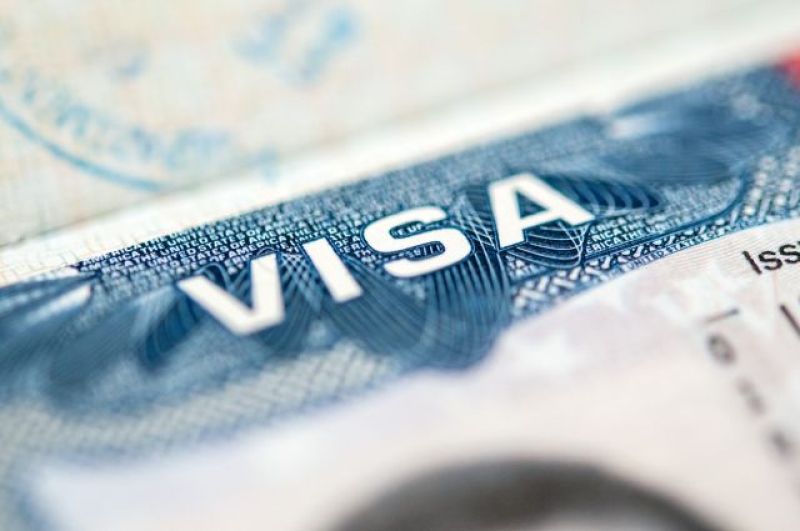The world has come a long way since our first articles about digital nomads. Since we started Euro Start Entreprises in 2007, international entrepreneurship has evolved from a few people with laptops in cafes to entire ecosystems built around attracting foreign entrepreneurs and startups. Part of the development of this trend is a spate of entrepreneur visas, attracting talented individuals to bring their ideas and resources to different countries.
Europe has emerged as a prime destination for this phenomenon, beckoning non-EU business founders to what is a rich, diverse, and lucrative market. American, British, and other non-EU entrepreneurs can now explore a range of entrepreneur visas that allow them to live, work and grow their businesses in Europe. We’ve taken a closer look at some of the most popular entrepreneur visas in Europe below, from their pros and cons to starting your own application.
France (Profession Libérale / Entrepreneur Visa)
France offers the Profession Libérale visa (also referred to as a long‑stay visa “entrepreneur/profession libérale”) for self‑employed professionals, freelancers, and entrepreneurs. Unlike France’s talent visa or salaried schemes, this route caters to people looking to establish a small or medium‑sized business in France, or working independently under things like contracts and service agreements.
To apply, candidates need to present a detailed business project, demonstrating how their enterprise will sustain their livelihood and provide economic benefits to France. Both the authorities and banks will require evidence of financial stability, with applicants needing to show they can support themselves, whether through existing capital or contracts and business deals. Once in France, you can then go through the process of registering as a micro‑entrepreneur, or setting up a company structure such as an SASU or SARL. For more information on this visit our article on French company structures.
One notable feature of the French entrepreneur visa is that self‑employed entrepreneurs under this visa can apply for a 10-year French residence permit after three years, offering you significant long‑term stability. France is also a great business destination in general, with strong creative industries, luxury goods and manufacturing sectors, and substantial infrastructure for startups (something we’ve written about plenty in the past!).
Starting a business in France does mean contributing to France’s social security system, meaning that you’ll be paying into health and pension schemes, adding to your costs slightly. However, French healthcare access is excellent, and the social benefits of living in France will tend to match these contributions. It’s the most visited country in the world for a reason! For more details on starting a French company, take a look at our article: Start a Business in France in 8 Steps or download our free guide at the end of this article.
Germany (Residence Permit for Self-Employment)
Germany is an obvious heavyweight in European business. The beating heart of European industry and finance, Germany is known for its strong economy, excellent infrastructure, and central location within the EU. It’s also famous for its ‘Mittelstand’ of small to medium-sized businesses which form the backbone of the economy, and provide a range of services to the larger industrial firms.
Foreign entrepreneurs looking to start a business in Germany can apply for a residence permit for the purpose of self-employment (also known as a ‘D-visa’) under Section 21 of the German Residence Act. This visa is ideal for those planning to establish a business with a specific economic interest, or which addresses regional demand for a certain product or service.
To qualify, applicants need to demonstrate a viable business plan, relevant experience, and adequate funding. For anyone over 45, proof of adequate pension provision will also be required. German authorities will assess the viability of your business idea, how it is likely to contribute to the German economy, and its ability to create jobs.
A major advantage of this visa is that it offers a pathway to permanent residency. This can be achieved after just three years if your business is successful, making it a powerful option for not just starting a successful business in a thriving nation, but also starting a new life. For more information on starting a business in Germany, take a look at our article The 5 Best Cities to Start a Business in Germany.
The Netherlands (Dutch Residence Permit for Startups)
The Netherlands is home to a thriving startup ecosystem, particularly in cities like Amsterdam and Rotterdam. The country offers two major visa options for entrepreneurs: the Residence Permit for Startups (sometimes simply known as the ‘Dutch Startup Visa’) and the Self-Employed Visa.
The Dutch Startup Visa is geared toward innovative entrepreneurs who want to launch a startup in collaboration with a designated local partner. The visa is valid for one year, and requires applicants to register with a facilitator (a business coach or incubator) approved by the Dutch government. During this time, the startup is expected to grow into a viable enterprise that demonstrates strong growth, and can support you financially.
If the initial period is successful, entrepreneurs can transition to the self-employed permit. The Self-Employed Visa is open to a broader range of entrepreneurs, but involves a points-based system which assesses the business’s innovation, value to the Dutch economy, and the entrepreneur’s personal experience. For more information, take a look at our article Why Holland is a Smart Place for your European Business.
Estonia (Estonian Startup Visa / E-Residency Programme)
Estonia has become a standout destination for digital entrepreneurs and tech startups, thanks to its digital-forward governance and low red tape. Estonia’s Startup Visa (part of its e-Residency programme) is one of the most attractive options in Europe for remote entrepreneurs who want to run an EU-based company without living full-time in Estonia.
With an e-Residency card, entrepreneurs can open a business bank account, manage taxes, sign contracts, and access Estonia’s digital government services from anywhere in the world. While the e-Residency is not a visa or residence permit, it is often used in conjunction with Estonia’s Startup Visa or Digital Nomad Visa for those wishing to relocate.
The Estonian Startup Visa allows founders of innovative companies to live and build their businesses in Estonia, provided they pass an evaluation by the Startup Committee. This visa is ideal for founders planning to raise funding or expand across Europe, with both the visa and e-Residency programme offering a simple route to starting a company with all of the benefits of EU membership.
Portugal (D2 Entrepreneur Visa)
Portugal has gained a reputation as a digital nomad hotspot (to the chagrin of some locals). There’s a good reason for this: as well as being a beautiful place to live and work, it’s also one of Europe’s most accessible and attractive destinations for entrepreneurs. The D2 Visa, or Immigrant Entrepreneur Visa, allows non-EU citizens to start or invest in a business in Portugal.
Applicants need to demonstrate a comprehensive and viable business plan, and show that they have the means to support themselves. Unlike many other entrepreneur visas, there is no strict minimum investment requirement, but authorities will expect you to have reasonable financial backing for your proposed business. Unlike some other visas, the D2 isn’t just aimed at tech entrepreneurs, either: new businesses can include restaurants, consultancies, or even small retail outlets.
Another common stipulation for low investment visas is that you aren’t allowed to bring your family with you, at least initially. This isn’t the case for the D2 visa either, as Portugal also offers the benefit of family reunification, as well as a pathway to permanent residency and citizenship after five years of legal residence. All of these factors make it a great choice for starting or expanding your business—and enjoying everything Iberia has to offer. For more information, take a look at our article Starting a Business in Portugal – Everything you Need to Know.
Spain (Entrepreneur Visa / Ley de Emprendedores)
The startup ecosystem has grown substantially in Spain, with the value of Spanish startups more than doubling in the past five years. This speaks to a supportive landscape for local businesses, but also for international investment. Spain’s Entrepreneur Visa is a competitive option for non-EU entrepreneurs looking to start an innovative business, and is primarily designed for tech and science ventures.
Created as part of the broader "Ley de Emprendedores" (Entrepreneurs Law), applicants for the Spanish Entrepreneur Visa must submit a detailed business plan for evaluation, either by Spain’s Commercial Office or the Directorate-General for International Trade and Investment. The business should be innovative and tap into a clear market opportunity, while applicants will also need to show evidence of sufficient financial resources, and arrange their own health insurance coverage.
Barcelona and Madrid both offer excellent startup ecosystems, but hubs are growing in cities across the country. Startups in Spain increasingly have access to funding from accelerators and angel investors, while co-working hubs are becoming a common meeting point for entrepreneurs to share ideas. Spain is also ideal if you’re in a rush to capitalise on a great idea, with fast-track processing for visa applications, as well as access to residence permits for family members.
Which entrepreneur visa is best?
Your preference in European entrepreneur visas will come down to a range of factors. While some visas are better for certain kinds of businesses—such as the Spanish entrepreneur visa being better suited to tech startups—much will depend on the dynamics of the local market for your business, and where you would prefer to work and live. The conditions of the visa when it comes to bringing your family with you can also be an enormous factor in which option you choose to pursue.
As an all-round proposition, it’s hard to beat the French or Portuguese entrepreneur visas. Both countries offer significant startup infrastructure and funding opportunities, as well as generous provisions for bringing family and clear paths to citizenship. Both countries also boast a high quality of life, and easy access to large markets, with France in particular offering many neighbouring countries and strong transport infrastructure.
Given the economic volatility of recent years, Germany also stands out for the general stability of its economic and political climate, and access to its historic industrial sectors. When it comes to startup culture, the Netherlands also rivals France, with a booming tech startup scene around Amsterdam, ample government funding and support, and a clear path to long-term residency. Estonia meanwhile is the new kid on the block, and offers a simple route to starting and managing a foreign business, perfect for remote-first businesses who’ll value its digital infrastructure.
While many entrepreneur visas come with rigorous documentation requirements and a thorough review process, they can also have a transformative effect on your life, allowing you to live out your dream of starting or expanding a business abroad. If you're serious about building a company in Europe, get in touch with us today, and find out how we can help you through the formation process, and onto the path to business success.







